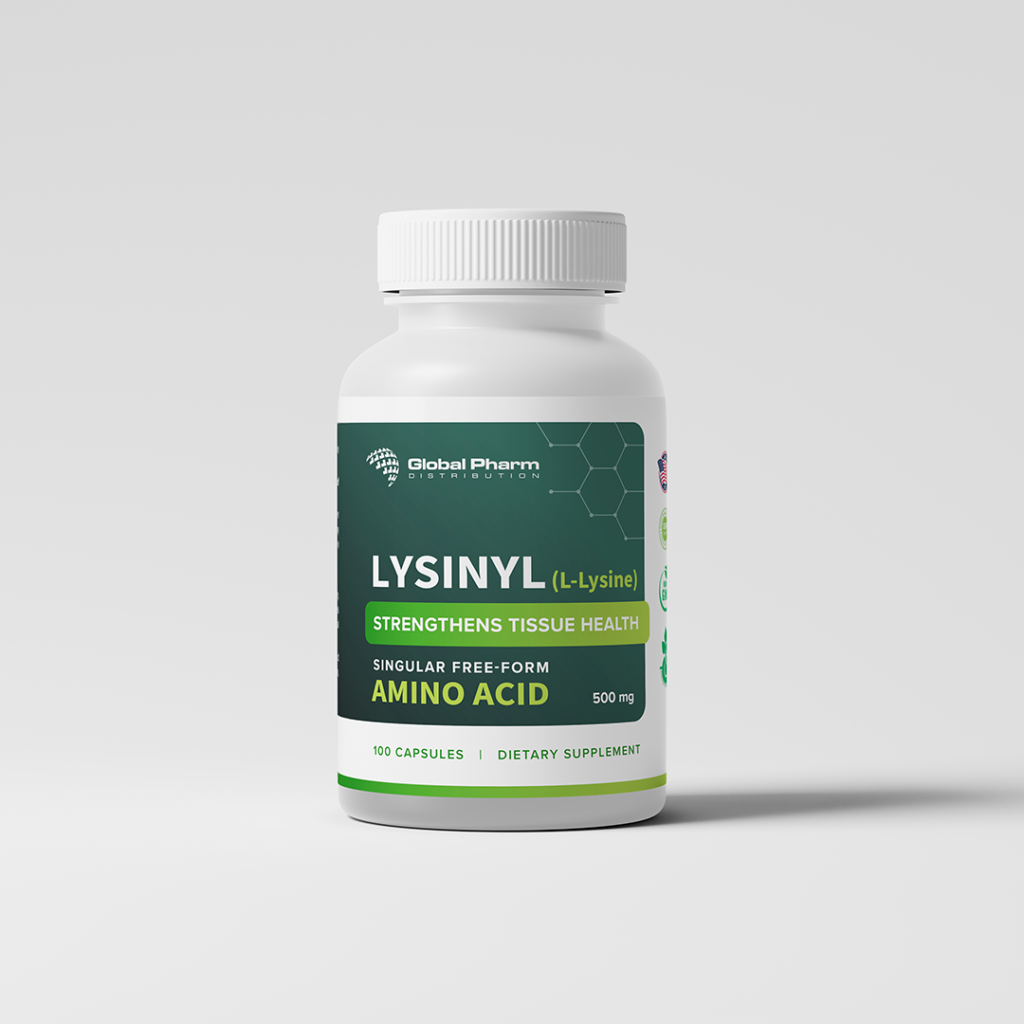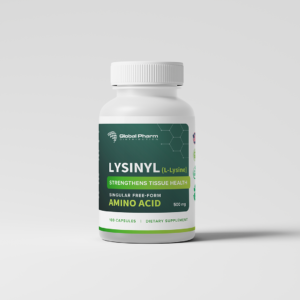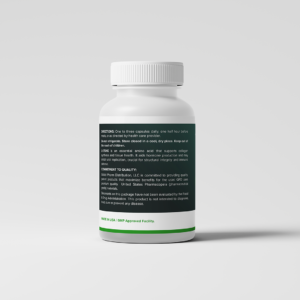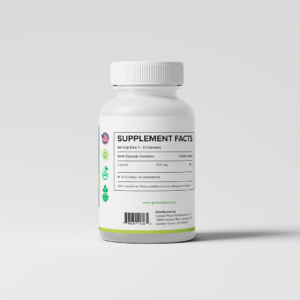Description
NDC: 53335-078-14 (capsule), 53335-079-29 (powder)
Weight: 4 Oz
L-Lysine is an essential amino acid abundant in muscle tissue, playing a vital role in protein synthesis and collagen formation, which supports muscle health and skin integrity. It is crucial for children’s growth and bone development, aiding in calcium absorption and bone matrix formation. L-Lysine also contributes to the production of antibodies, enhancing immune function, and may act as an antagonist to viruses like herpes and Epstein-Barr virus (EBV). Its deficiency, more common in vegetarians or those on meat-restricted diets, can lead to health issues, including a potential link to kidney stones. Research supports its role in tissue repair and antiviral activity (e.g., Griffith et al. 1978).
L-Lysine is particularly beneficial for individuals seeking to support growth, strengthen immunity, or address dietary deficiencies under metabolic stress. Manufactured using premium pharmaceutical-grade materials in a GMP-approved facility in the USA, L-Lysine is free of fillers, binders, or coloring agents, with no known side effects when used as directed.
Directions: Take 1-3 capsules daily or as advised by your healthcare provider. Pair with vitamins and minerals; GPD’s MVM (Multivitamin) is recommended. Powder equivalent: 1/4 level teaspoon per capsule.
Key Benefits
- Supports Muscle and Skin Health: Essential for protein and collagen synthesis.
- Promotes Bone Growth: Aids calcium absorption in children.
- Enhances Immune Function: Supports antibody production.
References
- Griffith RS, et al. (1978). “Success of L-lysine therapy in frequently recurrent herpes simplex infection.” Dermatologica, NIH.
- Flodin NW. (1997). “The metabolic roles, pharmacology, and toxicology of lysine.” Journal of the American College of Nutrition, NIH.
- Li P, et al. (2009). “Amino acids and immune function.” British Journal of Nutrition, NIH.
- Civitelli R, et al. (1992). “Dietary L-lysine and calcium metabolism in humans.” Journal of Clinical Endocrinology & Metabolism, NIH.
These statements have not been evaluated by the Food and Drug Administration. This product is not intended to diagnose, treat, cure, or prevent any disease. Consult a doctor or medical professional before use, especially if you have underlying health conditions or are taking other medications.
Additional Information The following points provide insight into L-Lysine’s plasma levels and their association with various health conditions, reflecting its role in metabolism:
- Normal Range: 100-250 µmol/L (approximate clinical range).
- Conditions Associated with Low Levels:
- Vegetarians or meat-restricted diets (inadequate intake)
- Malnutrition (due to protein deficiency)
- Growth retardation in children (insufficient lysine)
- Conditions Associated with High Levels:
- Excessive supplementation (from overdosage or dietary excess)
- Kidney dysfunction (impaired excretion)
- Hyperlysinemia (genetic disorder causing lysine accumulation)
- Notes: L-Lysine is an essential amino acid vital for muscle, skin, and bone health, supporting collagen synthesis and calcium absorption. It boosts immunity via antibody production and may inhibit viruses like herpes and EBV. Low levels are common in vegetarian diets or malnutrition, potentially linked to kidney stones, while high levels may indicate supplementation or metabolic disorders. These associations are correlative and require further research for causal confirmation. For more technical information, please click here. Consult a doctor or medical professional before use, especially if you have underlying health conditions or are taking other medications.
 Global Pharm Distribution, LLC
Global Pharm Distribution, LLC




